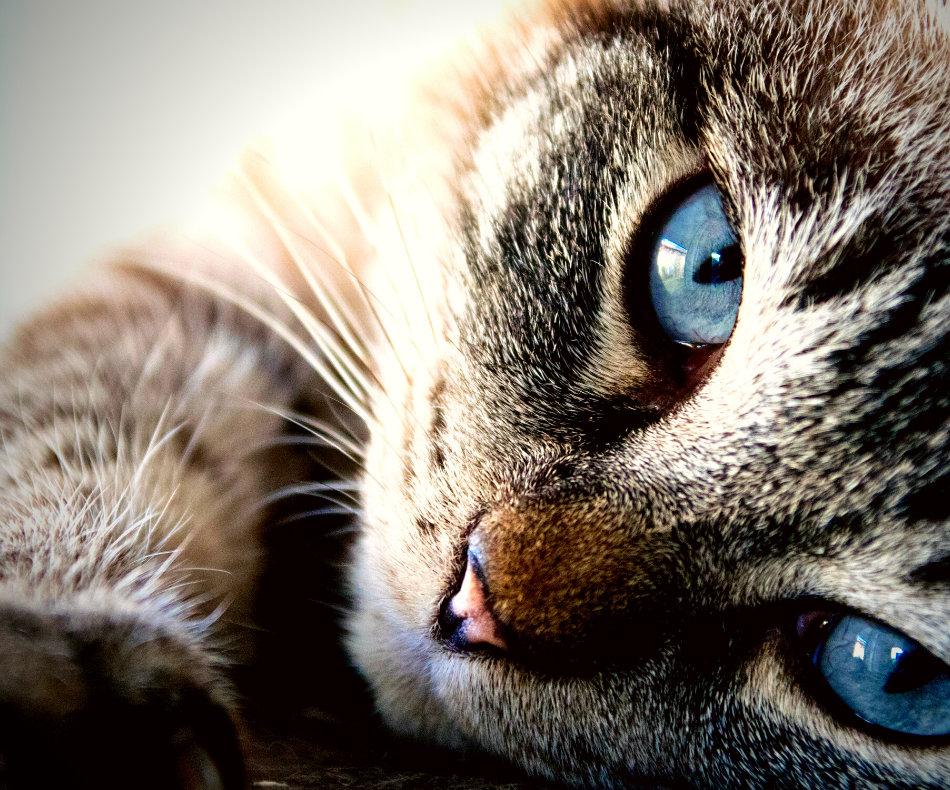Ann Hoff is a regular contributor to our FB Group “I Am not Crazy Because I Talk to Animals” and leads a monthly Zoom call with members wishing to chat with a pet, or simply ask Ann a question.
If you are like me, you have more than one pet. In fact, I like to keep a “herd” so that they are a family that plays together and interacts when I am not around. (That way I don’t feel as guilty when I leave them alone when I go to work each day.) I also love to watch my pets interact with each other and play. I loved watching the farm cats hang around with each other In their clowder. They would teach the kittens how to hunt, care for each other, play with each other, groom each other. My cat Samson grooms all my other cats, and it is so loving I am deeply moved. It is always nice to spread love around.
When you lose a dog or cat, it can seem singular, like the loss happened to you alone. However, when we lose someone, we aren’t the only one who loses them. The whole family experiences the loss. That is both your human family and your fur family. Depending on how close they were to your pet that died, it can be as devastating for them as for you. Everyone goes through grief singularly. We feel like we are going through it alone. But that isn’t true, others are dealing with grief from the loss of a loved one as well. The way we deal with the loss can bring us closer together or drive us further apart.
If I have a pet that is transitioning, I allow the rest of my fur family to be around. They understand death and get closure if they see the body. In my twenties I had two cats, and one of them disappeared. My other cat Speedy languished for days. I would see him wandering miles from my house, meowing, looking for his partner. He was inconsolable for weeks. I really thought that I was going to lose him, because he was wandering the neighborhood with no consideration for his own safety. This was before I was a communicator, and I didn’t know how to share the burden of his loss.
It isn’t easy to share the burden of someone else’s loss. The best we can do is show them that we love them, and that there are still good things to live for. It is amazingly healing to talk with others about the deceased loved one. With pets, it is good to acknowledge that the pet is gone, and to also realize that they may act differently for the next few weeks. Give them some flexibility in their grieving. If they haven’t seen the body, they may not miss the deceased pet for weeks. Then they may act anxious trying to figure out what is going on. What the new normal is. Even if they have seen the body, they need to figure out what the new normal is.
What I have learned from my animals is that they go through a period of grief remarkably like ours, and then lift out of it and move on with life. When my mare Magic lost a baby due to a birth defect, she was terribly upset and grieving. Then a few weeks later when I had her out riding in the wash, she tossed her head and took of loping. It was as if she said to me, we are still living, we deserve to enjoy the day. The fact that I was spending time with her allowed me to see that she was in that mind frame. Don’t push your pets to get over their grief before they are ready but allow them to move forward on their own timeline. My experience has been that they will move out of their grief faster than humans because they don’t repress it.
The other thing that happens with a family of pets is that there will be a vacuum in the pecking order of the family unit. If the loved one you lost was the dominant one, there might be a power struggle for who fills the void. With the grief of the loss, pets may be acting out with each other in a way they wouldn’t in normal times. Sometimes grief will show up in uneasiness, being short with others. It might not happen, but it is something to be on the lookout for. If the lost loved one was the one who was always on your lap, maybe pick up another pet to pet, or share that time with several pets.
My point is to be flexible and as loving as you can during this time of transition. If you help your pets heal from grief, they will be there for you also. It is the same with humans. I had a friend who got divorced. She had three children, the oldest of them sixteen. While the grief of the death of the marriage brought her and the younger two children closer together, her sixteen-year-old son took off in his car. He grieved the death of the marriage alone. Now, ten years later, he isn’t as close to his mom as the other two kids are.
Closeness may feel difficult after physical loss. I am not saying to force it. What I am recommending is that you are aware of the others around you, and what they need. It just may be what you need too. That way all of you will a tighter family unit when you arrive on the other side, not fractured it several worlds trapped in your own distinct pain.





